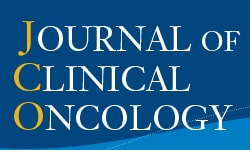“Agents that activate cannabinoid receptor pathways have been tested as treatments for cachexia, nausea or neuropathic pain in HIV-1/AIDS patients… Cannabinoid agonists activate the CB1R and CB2R cannabinoid receptors…
Cannabinoid agonists are currently under investigation for the treatment of AIDS-associated cachexia, nausea, and neuropathic pain. One such drug, dronabinol (Δ9-THC; Marinol®), has won Food and Drug Administration (FDA) approval for treatment of HIV-associated anorexia. Additionally, the prescription of smoked or ingested cannabis (marijuana) for treatment of AIDS-related symptoms has been approved…. Despite the use of cannabinoids by HIV/AIDS patients, few studies have investigated the impact of such drugs in regard to viral pathogenesis or immune regulation…
….Indeed, both smoked marijuana and dronabinol were reported to increase total CD4+ T cell number and naïve T cell number over a 21-day period. A decrease in viral load was also observed in these patients. Similarly, in SIV infected rhesus macaques, Δ9-THC exposure reduced viral load and CD4+ T cell depletion, significantly increasing animal survival over an 11 month period.
. Our findings suggest that CB2R activation in CD4+ T cells can inhibit actin reorganization and impair productive infection following cell-free or cell-associated viral acquisition of CXCR4-tropic HIV-1 in resting cells.
Therefore, the clinical use of CB2R agonists in the treatment of AIDS symptoms may also exert beneficial adjunctive antiviral effects against CXCR4-tropic viruses in late stages of HIV-1 infection.
Further study of cannabinoids and other neuroendocrine regulators that selectively modulate immune function may result in the discovery of new anti-viral drugs that can also mitigate AIDS-associated symptoms.”
Full text: http://www.ncbi.nlm.nih.gov/pmc/articles/PMC3309010/




